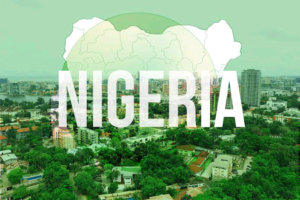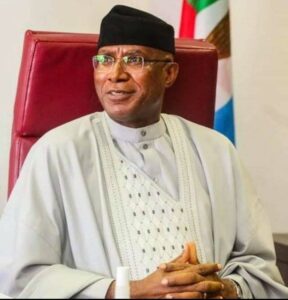OUR TAKE ON THE DEVALUATION OR NOT OF THE NAIRA
By Zik Gbemre
The Naira, as Nigeria’s currency, has indeed suffered many blows and economic forces for several decades now that have been persistently made its worth drastically reduce when compared to other foreign currencies. This was the same Naira that was robbing shoulders and even far stronger than the US dollar or Pound Starlings some five decades ago. And considering the importance of the need for a country to have a strong currency to compete favorably within the international economic community, it is in this light that we sincerely kick against the further devaluation of the Naira. With the recent discuss across the nation and pressure from international financial institutions, on Nigeria to devalue or not to devalue the Naira; we believe it is expedient for relevant stakeholders to really take a hard look on this issue and critically weigh its future implications on the nation’s economy.
Though, Vice President Yemi Osinbajo recently said devaluation of the Naira was not an appropriate option in the current economic realities in the country; as it offers no solutions as far as President Muhammadu Buhari’s administration is concerned, however, it appears some stakeholders are still not convinced that the devaluation of the Naira is not the solution to the country’s economic down turn. President Buhari had earlier expressed his view that a further devaluation of the Nigerian currency is not healthy for the Nigerian economy. And speaking when he recently received ambassadors from Italy and Canada, among other callers in his office, Osinbajo said: “I don’t agree on devaluation and it is not that I am doctrinaire about it. In the first place, it is not a solution – we are not exporting significantly. And the way things are, devaluation will not help the local economy. What we need to do is to start spending more on the economy and then things will ease up a bit.”
Also, the Central Bank of Nigeria (CBN), Mr. Goodwin Emefiele has restated that the CBN will not devalue the Naira anytime soon to revive the falling economy. He said that the Bank has had to depreciate the currency from N155 to N197 in February, recalling that even President Mohammdu Buhari and Vice President Yemi Osinbajo had also re-echoed the position of the CBN. Emefiele however stated that the CBN would soon launch a policy called PAVE meaning “Produce locally, Add Value and Export your product and earn your foreign exchange for your imports” to help local industries.
He said: “There has been a lot of talk on whether or not we want to depreciate our currency again. The truth is that we had adjusted the currency by depreciating it from N155 to N197 in February this year. There is no intention to depreciate or adjust the currency any longer. The President has been very clear on this. The Vice President has been very clear on this and let me further reiterate our position at the Central Bank of Nigeria that we are not considering any further depreciation of the currency. What we are trying to concentrate on right now is how to improve and deepen the foreign exchange market by improving supply of foreign exchange into the market. And to do so, we are trying to encourage people to export and earn your export proceeds and use your export proceeds to import whatever you need to import. We are also concentrating on how to reduce the import of items that we can produce in the country today. So that is our focus. I’m saying and very soon the CBN will be launching a campaign called PAVE, which means “Produce locally, Add Value and Export your product and earn your foreign exchange for your imports’’ because this is the only way we can support the efforts of CBN in intervening and providing foreign exchange in the market to meet the import needs of our people.
While we appreciate the CBN stand on the call for the devaluation of the Naira, let us reiterate here that any further devaluation of the Nigerian currency will make it become an ‘ordinary paper’ which cannot be used for any meaningful and tangible business or economic purpose. So it is far better for us as a nation to stay strong, stand our ground and do whatever that is necessary to revive the economy and add value to our Naira, rather than bow to international pressure and some highly-placed individuals to take the ‘easy way’ out by devaluing the Naira. Focusing on the economy to spur it back to life no matter how long and how hard it will take, is a far better option that would secure the Nigerian economic future than the option of devaluing the Naira.
Countries devalue their currencies only when they have no other way to correct past economic mistakes or problems forced on them by unforeseen circumstances. In the case of Nigeria the precipitous decline in crude oil prices has significantly limited the amount of foreign currency that Nigeria receives from the sale of petroleum. Since majority of the goods utilized in Nigeria are imported, the demand for foreign currency appears to be exceeding the rate at which the country’s foreign reserve is being replenished. So far the CBN has tried several measures to halt the freefall, but has refused to support the currency using our foreign reserves.
However, measures by the Central Bank of Nigeria to stabilize the Naira should not be a substitute for superior macro and micro economic practices and policies. As noted by Dr. Venin, a currency is the reflection of the country in which it is legal tender. It stores all the data about that country and their appraisal. Therefore, a currency is a unique measure of past and future with significant implications on the present. Finally, I believe that the lack of infrastructure (energy, water, transportation, etc) contributes to the high demand for foreign currency which is used to purchase goods that are not manufactured domestically depleting our foreign exchange reserves due to the massive capital outflows by the private sector. Again this is why the Federal government should strive to improve the country.
It is rather unfortunate that Nigeria, despite being blessed with vast natural resources and as a developing economy, is still heavily-import dependent. Her high dependency on goods and services from foreign countries may likely bring about more negative impacts than positive impacts as a result of devaluing the naira. Although, some financial and economic analysts have praised the Monetary policy Committee (MPC) of the Central Bank of Nigeria for taking a bold step to devalue the naira late 2014, but the question still remainshas the government done enough to create the enabling environment for businesses to produce locally and achieve more foreign exchange? Without a doubt, devaluation if properly managed can be used as a fiscal policy tool to discourage imports, achieve balance of payment as well as encourage and promote businesses, but Nigeria is not there yet, as most Small and Medium Scale Enterprises/Businesses(SMEs) still depend on goods and services from other countries to still be in business. The implication of the devaluation of the naira is that imports will become more expensive. An import dependent economy like Nigeria cannot afford to devalue her currency because the country is not producing a product that would attract buyers from other countries and SMEs are not well equipped by the government to produce these products.
Majority of SMEs still depend on goods and services from China, UK, USA etc, since importing tends to be cheaper than producing locally. And the reason why importing seems cheaper is simply because the cost of production in Nigeria is on the high side, hence, producers are either forced to cut corners to produce inferior goods or charge exorbitantly for their standard products. So, people tend to import more. The overdependence of SMEs on foreign products is suicidal as a drop in the value of Naira will result to higher cost of sales, and other operational/manufacturing costs. SMEs will have to spend more money to buy goods and services from other countries. This can result in inflation, low patronage of goods and services and resultant collapse of small and medium businesses.
In recent times, the drop in oil prices has left nations like Nigeria who run an oil based economy with undiversified economies in economic crises. This challenge brought about by exchange rate fluctuations is eventually leading to the devaluation of the Naira. This has affected the demand and supply sides of the economy. The Nigerian government both past and present, usually relies on foreign exchange reserve generated from crude oil to manage excessive volatility in exchange rate and recently crude oil prices have dropped drastically. This has tremendous implication for foreign exchange earnings. The capacity of the CBN to fund foreign exchange market has been called to question. Low level of foreign exchange reserve induces free movement of exchange rate. Issues are also on the rise on the demand side. There has been a high demand for foreign exchange in the last five (5) years as a result of factors like, heavy dependence on imported finished products, the industrial sector’s dependence on imported raw materials with other inputs, reversal of capital flow by investors and high speculative demand which has caused uncertainty in the foreign exchange market. Therefore, the increased foreign exchange demand in the face of unstable supply is leading to volatility in exchange rate.
Currency devaluation is a macro-economic fiscal policy which dwells on deliberate reduction in the value of local currency with the purpose of increasing gain in tradable items. In economic terms, agreed that cost of goods and services are cheaper in a nation where currency is devalued compared to another where there is no currency devaluation, but this depends on the strength of such an economy. For a country like Nigeria that is heavily-dependent on foreign goods and services, devaluing the naira may not be the best option at moment. Until we move away from such ‘foreign-dependence’ and start producing locally enough for export purpose, then we can start talking about enjoying the benefits of a devalued currency.
The Ibrahim Babangida led Military administration’s currency devaluation became quite popular in Nigeria when in 1986 he came up with the Structural Adjustment Programme (SAP) that saw the devaluation of the Naira. Many like us believe that step ruined the Nigerian economy and was the genesis of the problems being faced by the nation’s currency which we have not been able to come out from till today. For us to go through that again with further devaluation of the Naira is not a welcome idea.
The central bank has maintained that its decision not to undertake a further devaluation of the naira was as a result of the need to “safeguard the Nigerian economy from the shocks and negative impact this would have on the economy. It has also stated that it would not take desperate measures to satisfy few misguided interests in the market. The truth is that those calling for devaluation of the Naira are doing so not in the best interest of the nation. What we need to do as a nation, is to look inward, strive all we can to make Nigeria less import-dependent bit more export-dependent. And the best way to do this is for the Buhari government to provide the friendly business environment for domestic and foreign investment to thrive. This is where ensuring steady power supply, security assurance, friendly economic policies etc, comes into play.
We also believe that since Nigeria has enormous crude oil and natural gas reserves, there is need for the government to ensure that we expand the existing crude oil and natural gas refining capacity of the country so that export ‘refined petroleum products’; end the subsidy regime and earn enough foreign exchange in our exports. To this end, we would like to reiterate again that the Federal Government should, more importantly, compel the existing (exploration and production) International Oil Companies (IOCs), as well as indigenous oil and gas companies like the Nigerian Petroleum Development Company (NPDC) in the industry to refine at least, half (50%) of whatever crude oil or natural gas (which includes condensate that is a by-product of the extraction of natural gas) they produce. These IOCs and indigenous oil and gas companies should build/have refineries (plants) beside their existing production facilities, to refine natural gas and crude oil for domestic use in the country and for export purposes.
The crux of the matter is that further devaluation of Naira may not be a solution or an option to the current economic down turns in the country. However, one of the ways to stop the devaluation of Naira due to international market forces is to practically address the nation’s very weak economy. Nigeria still lacks the technology and industrial developments, and also lacks the manufacturing base economy and hi-tech industries to spur things around. As observed, most of the industries in the country are operating below standard and cannot compete favorably with their counterparts in other developed countries simply because of the ‘harsh business environment they find their selves . The Nation also lacks basic infrastructural development in all sectors and all of this makes the Naira to be very weak against the Dollar. As noted, the economy depends solely on the stability of oil price; economic diversification/implementation is highly suggested. Therefore, there is no magic bullet to make the Naira stronger but to invest in economic and social developments including good governance – where the importance of fiscal discipline comes into play.
Zik Gbemre, JP.
National Coordinator
Niger Delta Peace Coalition (NDPC)




